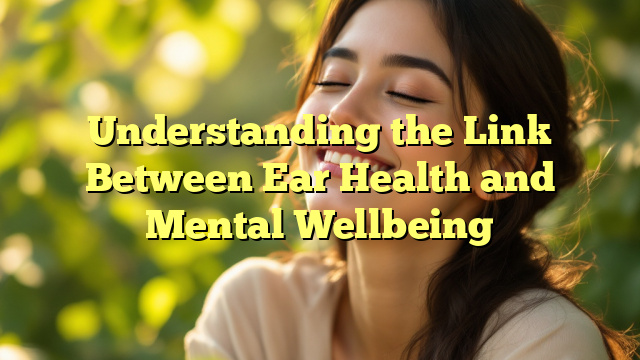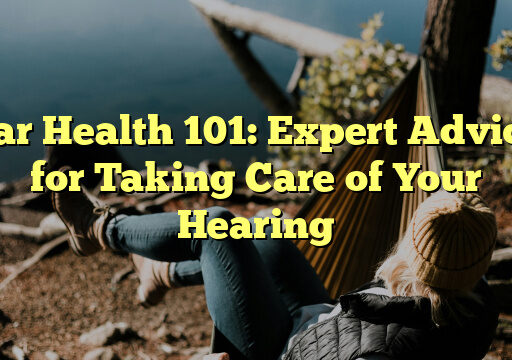Our ears play a crucial role not only in our ability to hear but also in our overall mental wellbeing. It may seem surprising, but research has shown that there is a strong link between ear health and mental health. In this article, we will explore this connection and discuss how taking care of our ears can benefit our mental wellbeing.
How Ear Health Affects Mental Wellbeing
Our ears are not just responsible for hearing sounds; they also play a role in maintaining our balance and spatial orientation. When our ears are not functioning properly due to conditions like hearing loss, tinnitus, or ear infections, it can have a negative impact on our mental health.
For example, hearing loss can lead to feelings of isolation, anxiety, and depression. Difficulty hearing and communicating with others can result in social withdrawal and a sense of loneliness. Moreover, hearing loss can also affect our cognitive abilities, leading to problems with memory and concentration.
Similarly, tinnitus, a condition characterized by ringing or buzzing sounds in the ears, can cause significant distress and impact our mental wellbeing. The constant noise can be disruptive and make it difficult to focus or relax, leading to increased stress and anxiety.
Ear infections, if left untreated, can also have serious consequences for our mental health. The pain and discomfort caused by an ear infection can be debilitating and affect our mood and overall quality of life.
The Importance of Ear Care for Mental Wellbeing
Given the significant impact that ear health can have on mental wellbeing, it is essential to take care of our ears and seek treatment for any issues that may arise. Here are some tips for maintaining good ear health:
- Protect your ears from loud noises by wearing earplugs or earmuffs in noisy environments.
- Clean your ears regularly but avoid using cotton swabs, as they can push earwax further into the ear canal.
- Seek treatment for any hearing loss, tinnitus, or ear infections promptly.
- Follow a healthy diet and exercise regularly to promote overall wellness, including ear health.
- Avoid inserting foreign objects into your ears, as this can cause damage and increase the risk of infection.
Conclusion
It is clear that there is a strong link between ear health and mental wellbeing. By taking care of our ears and addressing any issues that may arise, we can improve our overall quality of life and mental health. Remember to prioritize your ear health and seek professional help if you experience any problems with your hearing or ear health.
FAQs
Q: Can hearing loss cause depression?
A: Yes, hearing loss can lead to feelings of isolation, anxiety, and depression.
Q: How can I protect my ears from hearing loss?
A: You can protect your ears from hearing loss by wearing ear protection in noisy environments and avoiding prolonged exposure to loud noises.
Q: What should I do if I experience tinnitus?
A: If you experience tinnitus, it is important to seek medical advice to determine the cause and explore treatment options.
Q: Are ear infections a common cause of mental health issues?
A: Ear infections can cause significant pain and discomfort, which can impact mental health if left untreated.
Unlock the Secret to a Peaceful Life



